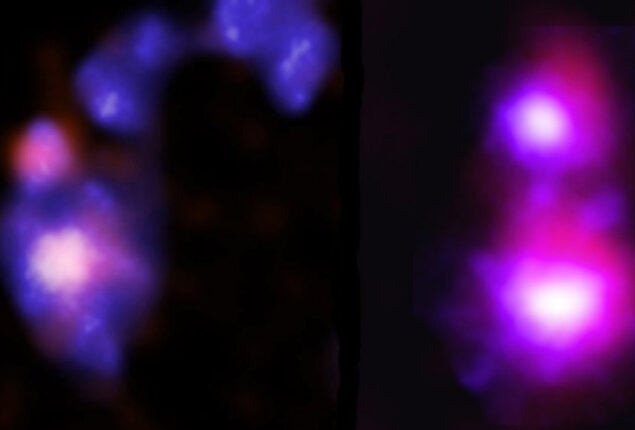Optical Illusion: Find the Hidden Pyramids in Picture shared by NASA
Many photographs are being shared on social media these days as optical...

NASA Chandra X-ray tracked two pairs of supermassive black holes
NASA‘s Chandra X-ray Observatory was used in a new study that tracked two pairs of supermassive black holes in dwarf galaxies on collision courses, the agency announced on Wednesday.
According to NASA, this is the first evidence for such an impending encounter, providing scientists with important information about the growth of black holes in the early universe.
According to NASA, dwarf galaxies are defined as having stars with a total mass less than about 3 billion times that of the sun.
Dwarf galaxies are thought to merge in order to grow into the larger galaxies that we see today, especially in the relatively early universe. According to NASA, the first generation of dwarf galaxy mergers are extremely faint at their great distances, making it impossible for current technology to observe them.
The new study overcame these obstacles by employing a systematic survey of deep Chandra X-ray observations and comparing them with optical data from the Canada-France-Hawaii Telescope as well as infrared data from NASA’s Wide Infrared Survey Explorer.
In order to find evidence of two black holes colliding, US astronomers looked for pairs of bright X-ray sources in colliding dwarf galaxies. They found two such instances.
One pair is in the 760 million light-year away galaxy cluster Abell 133. The other is located in the 3.2 billion light-year-distance Abell 1758S galaxy cluster. According to NASA, both pairs exhibit structures that are telltale signs of galaxies colliding.
Catch all the Sci-Tech News, Breaking News Event and Latest News Updates on The BOL News
Download The BOL News App to get the Daily News Update & Follow us on Google News.